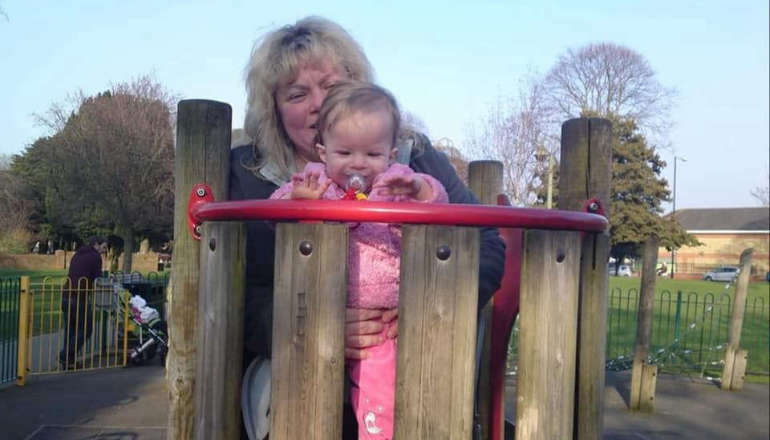
Island health chiefs have urged parents to be on the lookout for symptoms after a rise in infections caused by the Strep A bacterium.
Group A streptococcus can cause infections such as a sore throat, scarlet fever, as well as infections of the skin and soft tissues.
Though uncommon, it can also lead to a serious illness called invasive group A streptococcus infection (iGAS) which can be managed with antibiotics.
Simon Bryant, director of Public Health, has today (Tuesday) urged parents to remain vigilant to signs of children becoming seriously unwell and to seek early medical advice.
He said there had been an unusually high number of 'Group A streptococcus' (GAS) and seasonal infections this year compared to previous years, both nationally and locally.
Currently, there is no evidence that a new strain is circulating.
The infection is spread by physical contact or through droplets from sneezing or coughing.
Mr Bryant said:
"While we know parents are going to be worried by reports they are seeing related to iGAS, the condition remains uncommon.
"Cold and flu like symptoms are very common at this time of year, especially in children.
“Some children with cold and flu like symptoms — sore throat, headache, fever — may be experiencing some of the early symptoms of scarlet fever.
"In this case they will go on to develop scarlet fever specific symptoms, including a fine pink-red rash that feels like sandpaper to touch, and parents should contact their GP."
Scarlet fever is much more common in children than in adults.
The rash of scarlet fever often begins with small spots on the body that then spread to the neck, arms and legs. It is often 'sand-paper' like to touch but is not itchy.
Your child may also have a:
- sore throat/tonsillitis;
- fever (temperature of 38°C (100.4°F) or above);
- painful, swollen glands in the neck;
- a red tongue (strawberry tongue).
Strep A infections are usually mild and can be easily treated with antibiotics.
If your child has scarlet fever, keep them at home until at least 24 hours after the start of antibiotic treatment to avoid spreading the infection to others.
If a parent or carer suspects scarlet fever or invasive group A streptococcal infection, they should call their GP or NHS 111 as prompt treatment with antibiotics can prevent serious illness and stop the spread of infection.


 Inspirational Jack Takes On New Year Endurance Challenge For CALM
Inspirational Jack Takes On New Year Endurance Challenge For CALM
 Here's Where You Can Dispose Of Your Real Christmas Tree
Here's Where You Can Dispose Of Your Real Christmas Tree
 Casualty Recovered After St Boniface Down Incident
Casualty Recovered After St Boniface Down Incident
 Green Homes Events: Could Your Home Benefit From Energy Improvements?
Green Homes Events: Could Your Home Benefit From Energy Improvements?
 Four Community Projects To Receive Major Grants To Continue Their Work
Four Community Projects To Receive Major Grants To Continue Their Work
 Emergency Services Called To Three-Vehicle Arreton Crash
Emergency Services Called To Three-Vehicle Arreton Crash
 Man Arrested Following Drug-Driving Collision Between Nettlestone And Ryde
Man Arrested Following Drug-Driving Collision Between Nettlestone And Ryde
 Full Council To Debate Devolution And Potential Election Delay Amid Tight Government Deadlines
Full Council To Debate Devolution And Potential Election Delay Amid Tight Government Deadlines
 Newport's Isorropia Foundation To Complete Purchase Of Medina Valley Centre Following £1m Award
Newport's Isorropia Foundation To Complete Purchase Of Medina Valley Centre Following £1m Award
 Memorial Held Following Death Of Kezi's Kindness Founder Nikki Flux-Edmonds
Memorial Held Following Death Of Kezi's Kindness Founder Nikki Flux-Edmonds
 Call To Return NHS And Social Care Equipment That Is No Longer Needed
Call To Return NHS And Social Care Equipment That Is No Longer Needed
 Severe Gales And Heavy Rain Forecast For New Year's Day On Isle Of Wight
Severe Gales And Heavy Rain Forecast For New Year's Day On Isle Of Wight
 Another Blow For Newport Nightlife As Wyld Closure Announced
Another Blow For Newport Nightlife As Wyld Closure Announced
 Emergency Services Called To Shanklin Following Christmas Day Death Of Elderly Woman
Emergency Services Called To Shanklin Following Christmas Day Death Of Elderly Woman
 Isle Of Wight Actor Acclaimed For Highlighting Issues Around Autism
Isle Of Wight Actor Acclaimed For Highlighting Issues Around Autism
 Mountbatten Inviting Islanders To Sign Up For 2026 Lapland Husky Trail
Mountbatten Inviting Islanders To Sign Up For 2026 Lapland Husky Trail
 Popular Totland Bay Seawall Footpath Reopens
Popular Totland Bay Seawall Footpath Reopens
 Salvation Army Receives Festive Boost Thanks To December Donation From Southern Vectis
Salvation Army Receives Festive Boost Thanks To December Donation From Southern Vectis
 Isle Of Wight Council Supporting ‘Hoodies For Homeless’ Campaign
Isle Of Wight Council Supporting ‘Hoodies For Homeless’ Campaign
 Big Give 2024 Sees Huge Donation For Isle Of Wight Charity
Big Give 2024 Sees Huge Donation For Isle Of Wight Charity


